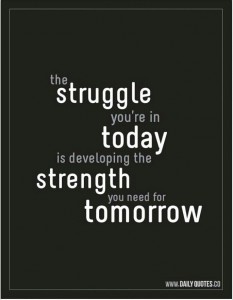
By Mark E. Smith
With my new book launching at this writing, I’m already thinking of my next book. I’m envisioning a children’s book titled, Psst, Really, Really Bad Things are Going to Happen to You…. It’s inspired by my six-year-old nephew who, like virtually every adult I know, is continually shocked when bad things happen to him. Therefore, I figure why not warm up kids for the fact that beyond a skinned knee or a lost Teenage Mutant Ninja Turtle doll, life is going to get really, really bad the older they get. It’s a way of curbing denial and self-victimization. It says, Kids, your life will be filled with misery and pain and disappointment, so toughen up and get used to it! It’s an inspiring life lesson through an illustrated book that truly cognizant parents can share with their children to increase their emotional quotient (E.Q.) at an impressionable developmental stage.
My main character will be little Joey, a cute, optimistic tyke who’s in for an avalanche of problems. Daddy drinks a lot since he lost his job, and Mommy has a new “friend” that she visits when she’s supposed to be at Grandma’s house. Soon, Daddy finds text messages from Mommy’s friend, and it all leads to a nasty divorce. But, moving into public housing has its perks – a playground!
As Joey gets older, he’s occasionally bullied in school, struggles with math, but gets his first girlfriend. She smokes menthols at 16, and he’ll forever connect eroticism and cigarettes, the taste of his first kiss. But, she’s unstable – the cuts on her arms letting some of it out – and she holds his heart on puppet strings, music lyrics resonating with him:
And Baby,
Its amazing Im in this maze with you.
I just cant crack your code.
One day you screaming you love me loud,
The next day you’re so cold.
One day you here, one day you there, one day you care.
You’re so unfair. Sipping from the cup,
Till it runneth over. Holy Grail.
Alas, she dumps him after a few months, and he falls into a deep, dark depression, where the taste of menthol on her lips lingers on his as the song’s lyrics play over and over in his head, sipping from the cup of despair till it runneth over.
Yet, Joey gets a $500 Oldsmobile Delta 88 Diesel and is happy – that is, till it gets stolen, and he’s back to taking the bus to work at McDonald’s, where he hates his job and hates his boss, but has a work ethic that pulls him through each evening after school, returning home, smelling like grease.
And, Joey picks up his high school grades, gets into college, meets an amazing woman, gets a job in I.T., and has two kids and a house in the suburbs. But, since having kids, his wife has lost all interest in physical intimacy, and has taken to compulsive shopping, putting the family over $100,000 in debt. And, the lyrics come back: One day you screaming you love me loud. The next day you’re so cold.
Then there’s the divorce and custody battle, the lost job. But, hey, Joey, look at the bright side: at least you’re not living in an empty, dive apartment by the railroad tracks, windows rattling as trains go by at night as you’re plagued by anxiety-induced insomnia. Oh, wait, Joey is living in an empty, dive apartment by the railroad tracks, windows rattling as trains go by at night as he’s plagued by anxiety-induced insomnia.
However, Joey is now only 46, so there’s still time – for life to get much worse. And, it will.
…Isn’t it amazing the denial and self-victimization that our culture perpetuates. It’s instilled in us from childhood, in a uniquely American mythology, that if we do everything right, we’ll end up healthy, wealthy, and happy. But, by nature, that can’t happen. Beyond our own behavior, there’s not much we can control, so why are we shocked when bad, uncontrollable things happen? From the weather to the economy to other people, so much of it’s beyond our control, so why are we surprised when it doesn’t go our way? And, in a larger question, if the only aspect of our lives that we can control is our own behavior, why do we label ourselves victims in so many cases?
The key to addressing adversity is by accepting adversity. Bad things don’t just happen to Joey, but to all of us. Drop the self-victimization, and simply recognize that adversity is part of life. It’s not a question of fair or unfair, just or unjust; rather, it’s life. Some parts of life are good, some parts are bad, but if we accept it all, that’s where we toss away bitterness and resentment, and just value what we have at any moment. For Joey, after a life of lessons, he knows that he can handle any adversity, where empty apartments aren’t ends, but beginnings.






